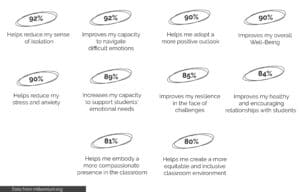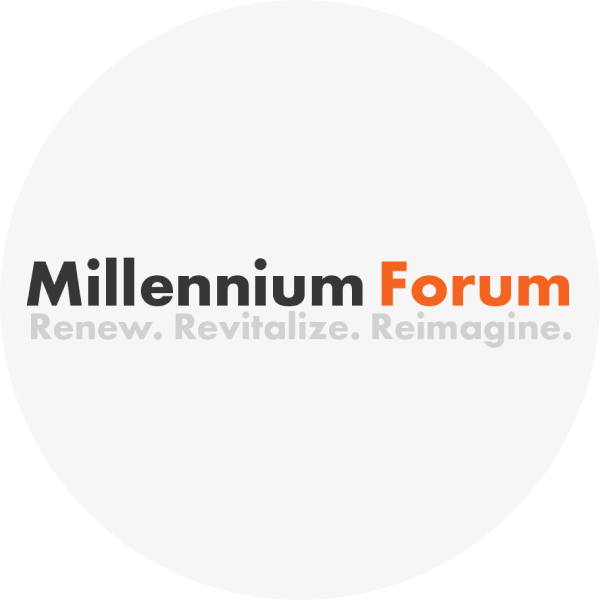Do Circles work?
Hard data is hard to get. And then there’s the question: What outcomes are we looking for?
We’re proud of our partner, Millennium Forum. They run an amazing Circles program for K-12 teachers. Their research partners and team have helped them design ways to measure and learn from outcomes.
First, some context…
In general, we talk about three categories of outcomes:
• Educational. Circles make it easier to sustain and apply learning, extending programs like manager training.
• Social. Participants get close. They help and support each other in ways that transcend any particular topics.
• Cultural. A circles experience shifts you to be more inclusive, vulnerable, and accountable. Diversity becomes a strength.
Each Circles program and partner emphasizes different outcomes. Millennium’s “Theory of Change” focuses on the second and third categories. By taking care of each other, educators will take better care of their classrooms.
Their latest mid-year results show real success:

What about you?
Do you suspect similar outcomes from your Circles programs, only haven’t measured them? Are these high scores for helping teachers help students analogous to helping managers help employees?
